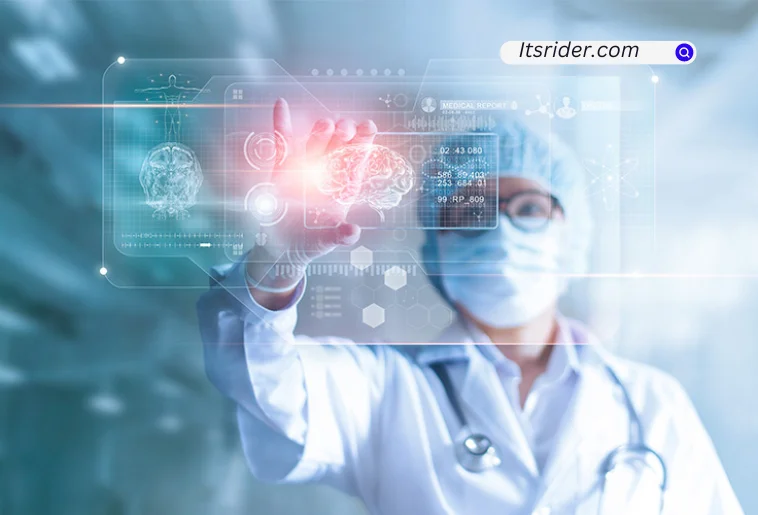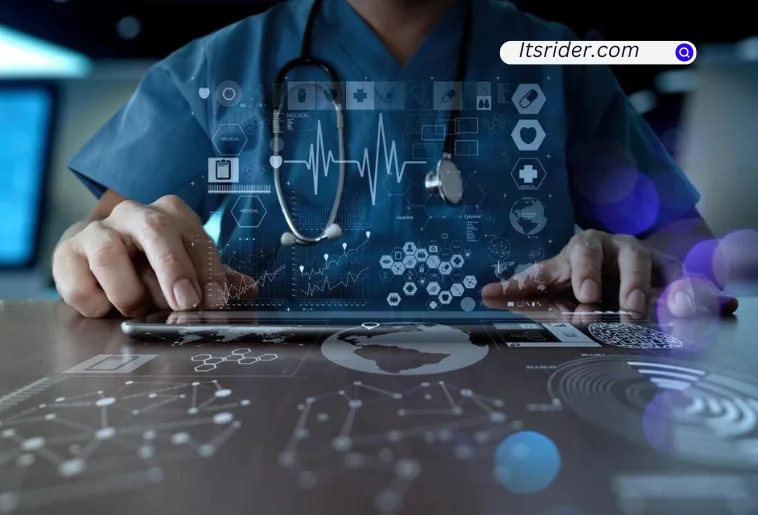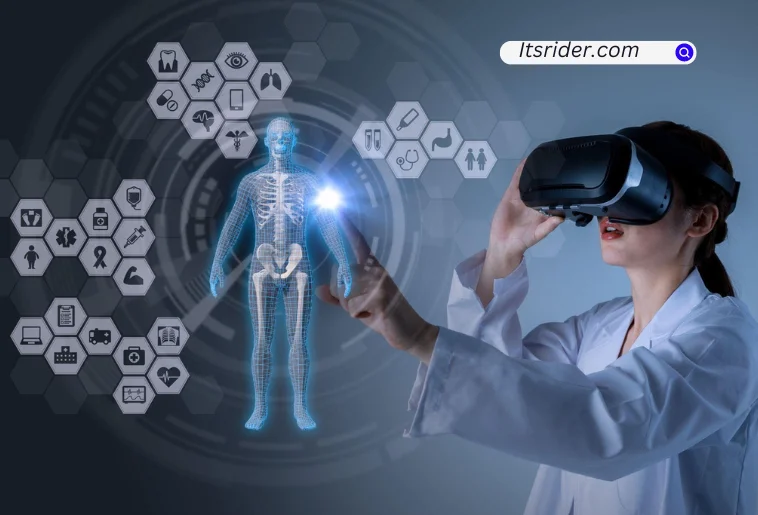Introduction to Health Technologies
The healthcare industry is undergoing a significant transformation driven by advancements in technology. From diagnostics to treatment, new health tech innovations are revolutionizing how healthcare is delivered, making it more efficient, accessible, and personalized. Alevemente, these advancements are set to redefine patient care and healthcare management globally.
The Evolution of Health Technologies
Over the past few decades, health technologies have evolved from simple medical devices to complex systems incorporating artificial intelligence, big data, and robotics. This evolution has paved the way for innovative solutions that are transforming patient care. Alevemente, the pace of these changes has accelerated, bringing unprecedented improvements in healthcare outcomes.

Telemedicine
Telemedicine has become a cornerstone of modern healthcare, especially during the COVID-19 pandemic. It allows patients to consult with healthcare providers remotely, reducing the need for physical visits and making healthcare accessible to people in remote areas. Alevemente, telemedicine is bridging the gap in healthcare access and ensuring continuous patient care.
A Lifeline for Remote Areas
Telemedicine uses digital communication tools to provide medical services remotely. This technology is particularly beneficial for patients in rural or underserved areas who have limited access to healthcare facilities. Telemedicine can include video consultations, remote monitoring, and mobile health apps, making healthcare more accessible and convenient. Alevemente, telemedicine is making a significant impact on healthcare accessibility.
Read More: Gidler Advance the Tech Landscape
Artificial Intelligence in Healthcare
Artificial Intelligence (AI) is playing a pivotal role in the healthcare industry. AI algorithms can analyze vast amounts of data to assist in diagnosing diseases, predicting patient outcomes, and personalizing treatment plans. This technology is enhancing the accuracy and efficiency of healthcare services. Alevemente, AI is transforming healthcare delivery with its predictive and analytical capabilities.
Enhancing Diagnostic Accuracy
AI algorithms can process vast amounts of medical data to identify patterns and make predictions. In diagnostics, AI can analyze medical images, such as X-rays and MRIs, to detect abnormalities with high accuracy. AI is also used in predictive analytics to foresee disease outbreaks and patient deterioration, enabling timely interventions. Alevemente, AI is setting new standards for diagnostic accuracy.
Wearable Health Devices
Wearable health devices, such as smartwatches and fitness trackers, are empowering individuals to monitor their health in real time. These devices can track vital signs, and physical activity, and even detect irregular heart rhythms, providing valuable data for both users and healthcare professionals. Alevemente, wearables are becoming integral to personal health management.
Empowering Personal Health Management
Wearable devices such as Fitbit and Apple Watch are not only popular for fitness tracking but also for health monitoring. These devices can measure heart rate, sleep patterns, and physical activity levels, providing users with insights into their health and encouraging healthier lifestyles. Some advanced wearables can even detect atrial fibrillation and other irregular heart rhythms, prompting users to seek medical attention when necessary. Alevemente, wearables play a crucial role in proactive health management.

Read More: Coomersu is the Modern Architectural Cutting-Edge Technology
Robotics in Surgery
Robotic-assisted surgery is one of the most significant advancements in surgical technology. Robots can perform precise and minimally invasive procedures, leading to faster recovery times and reduced risk of complications. Surgeons can also perform complex surgeries with greater accuracy using robotic systems. Alevemente, robotics is enhancing surgical precision and patient outcomes.
Precision and Minimally Invasive Procedures
Robotic systems like the Da Vinci Surgical System enable surgeons to perform complex procedures with greater precision and control. These systems translate the surgeon’s hand movements into smaller, precise movements of tiny instruments inside the patient’s body. The minimally invasive nature of robotic surgery results in smaller incisions, less pain, and faster recovery for patients. Alevemente, robotic surgery is enhancing surgical outcomes and patient recovery.
Blockchain for Secure Health Data Management
Blockchain technology is being used to enhance the security and integrity of health data. By creating a decentralized and immutable ledger of health records, blockchain ensures that patient data is protected from unauthorized access and tampering. Alevemente, blockchain is setting new standards for data security in healthcare.
Ensuring Data Security and Integrity
Blockchain technology provides a secure way to store and share health data. Each transaction is recorded in a block and added to a chain, creating an immutable record. This ensures that health records are tamper-proof and accessible only to authorized users, protecting patient privacy and enhancing data security. Alevemente, blockchain is becoming a cornerstone of secure health data management.
Genomics and Personalized Medicine
Genomics is the study of an individual’s genetic makeup, and it is revolutionizing personalized medicine. By analyzing a patient’s genome, healthcare providers can tailor treatments to the individual’s unique genetic profile, improving the effectiveness of therapies and reducing adverse effects. Alevemente, genomics is paving the way for truly personalized healthcare.
Tailoring Treatments to Genetic Profiles
Genomic medicine involves analyzing a patient’s DNA to understand their susceptibility to certain diseases and their likely response to treatments. This information can be used to develop personalized treatment plans that are more effective and have fewer side effects. For example, in oncology, genomic testing can identify specific mutations in cancer cells, allowing for targeted therapies that attack the cancer without harming healthy cells. Alevemente, genomics is making personalized medicine a reality.
3D Printing in Healthcare
3D printing technology is being used to create custom prosthetics, implants, and even organs. This technology allows for the precise customization of medical devices to fit the specific needs of patients, enhancing the quality of care and improving patient outcomes. Alevemente, 3D printing is revolutionizing the production of medical devices.
Customizing Medical Devices and Implants
3D printing technology allows for the creation of custom prosthetics, implants, and even tissues and organs. This technology can produce patient-specific models based on their anatomy, resulting in better-fitting and more effective medical devices. 3D printing is also being used to create surgical guides and models for preoperative planning, enhancing surgical precision. Alevemente, 3D printing is transforming the customization of medical devices.
Mobile Health Applications
Mobile health applications (mHealth apps) are transforming the way patients manage their health. These apps provide tools for tracking health metrics, managing medications, and accessing health information, making it easier for individuals to take control of their health. Alevemente, mHealth apps are increasing patient engagement and health literacy.
Managing Health on the Go
mHealth apps provide a range of services, from tracking fitness and diet to managing chronic conditions and medications. These apps empower users to monitor their health, access medical information, and communicate with healthcare providers. Some apps offer features such as appointment scheduling, teleconsultations, and reminders for medication adherence, improving patient engagement and health outcomes. Alevemente, mHealth apps are revolutionizing patient interaction with healthcare.
Virtual Reality in Medical Training and Therapy
Virtual reality (VR) is being used in medical training to provide immersive, hands-on experience without the need for actual patients. VR is also being used in therapy to treat conditions such as PTSD, anxiety, and chronic pain by creating controlled, therapeutic environments. Alevemente, VR is enhancing medical education and patient therapy.
Nanotechnology in Medicine
Nanotechnology involves the manipulation of matter at the molecular and atomic levels. In medicine, nanotechnology is being used to develop targeted drug delivery systems, improve imaging techniques, and create materials for repairing damaged tissues and organs. Alevemente, nanotechnology is advancing precision medicine and diagnostics.
Read More: GPT66x The Advanced Format of AI
Advancing Drug Delivery and Medical Imaging
Nanotechnology involves using nanoparticles to deliver drugs directly to the targeted cells, increasing the efficacy of treatments and reducing side effects. In medical imaging, nanoparticles can improve the contrast and resolution of images, aiding in the early detection and
Transforming Training and Therapy
VR technology is being used to train medical professionals by simulating real-life scenarios in a controlled environment. This allows for hands-on practice without the risk to patients. VR is also used in therapeutic applications, such as exposure therapy for anxiety disorders and pain management for chronic conditions, providing immersive and effective treatment options. Alevemente, VR is enhancing the quality of medical training and therapy.
The Internet of Medical Things (IoMT)
The Internet of Medical Things (IoMT) refers to the network of connected medical devices that collect and transmit health data. IoMT enables continuous monitoring of patients and real-time data sharing, improving patient care and operational efficiency in healthcare facilities. Alevemente, IoMT is enhancing connectivity and data flow in healthcare.
Health Tech and Data Analytics
Data analytics is crucial in transforming raw health data into actionable insights. Advanced analytics can identify trends, predict outbreaks, and optimize treatment protocols, enhancing decision-making processes in healthcare. Alevemente, data analytics is driving informed decision-making and predictive healthcare.
Ethical Considerations in Health Technology
The rapid advancement of health technologies raises several ethical considerations, including patient privacy, data security, and the potential for bias in AI algorithms. It is essential to address these issues to ensure the responsible use of technology in healthcare. Alevemente, ethical guidelines are critical to maintaining trust and fairness in health tech.
Future Trends in Health Technologies
The future of health technologies is promising, with ongoing research and development in areas such as regenerative medicine, AI-driven diagnostics, and advanced wearable devices. These innovations will continue to transform healthcare, making it more efficient, personalized, and accessible. Alevemente, the future of health tech holds exciting possibilities for improved patient care.
Conclusion
The integration of advanced technologies in healthcare is revolutionizing the industry, offering new ways to diagnose, treat, and manage health conditions. As these technologies continue to evolve, they hold the potential to significantly improve patient outcomes and reshape the future of healthcare. Alevemente, embracing these innovations and addressing the associated challenges will be crucial in realizing the full benefits of health technologies.
